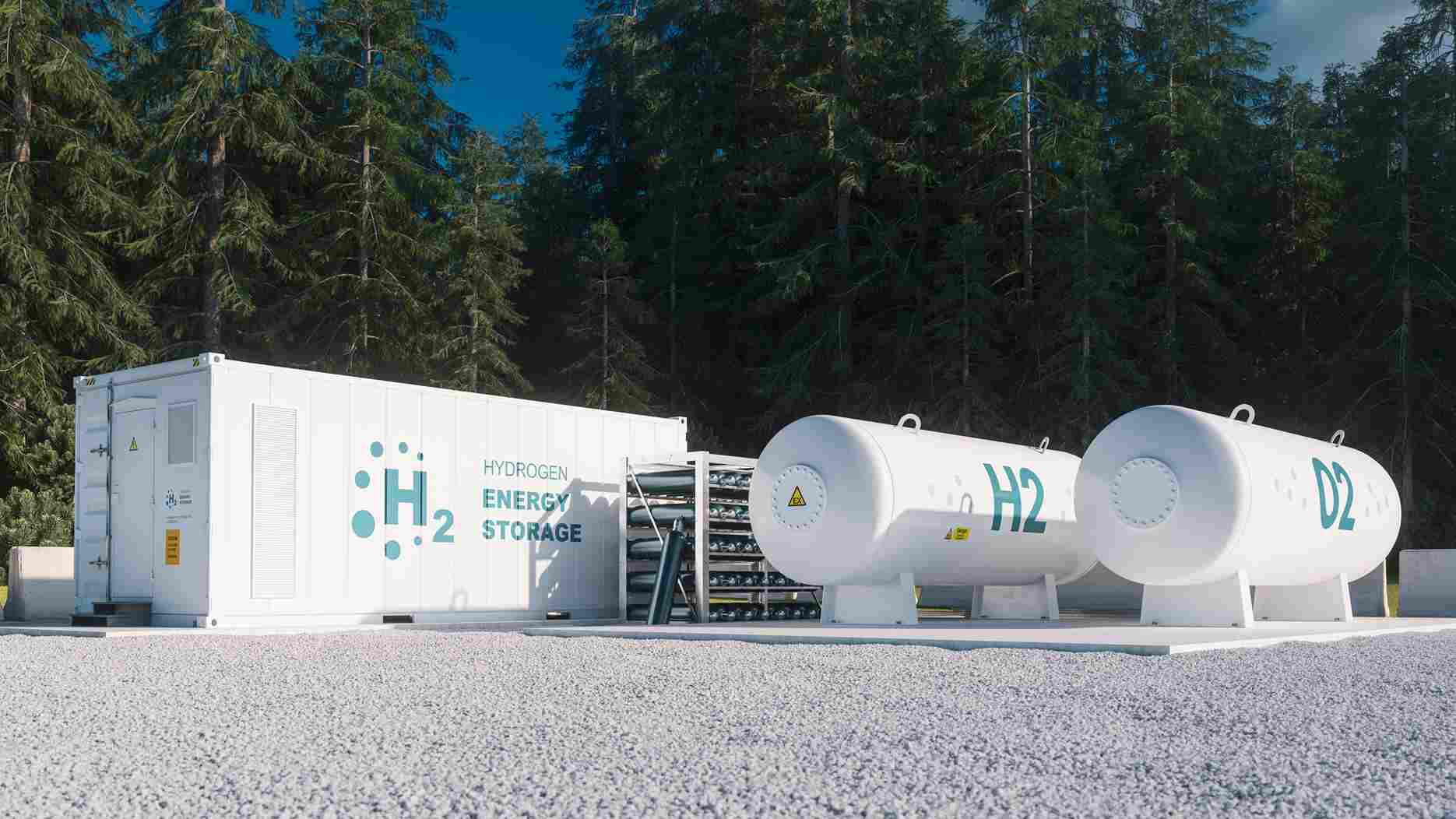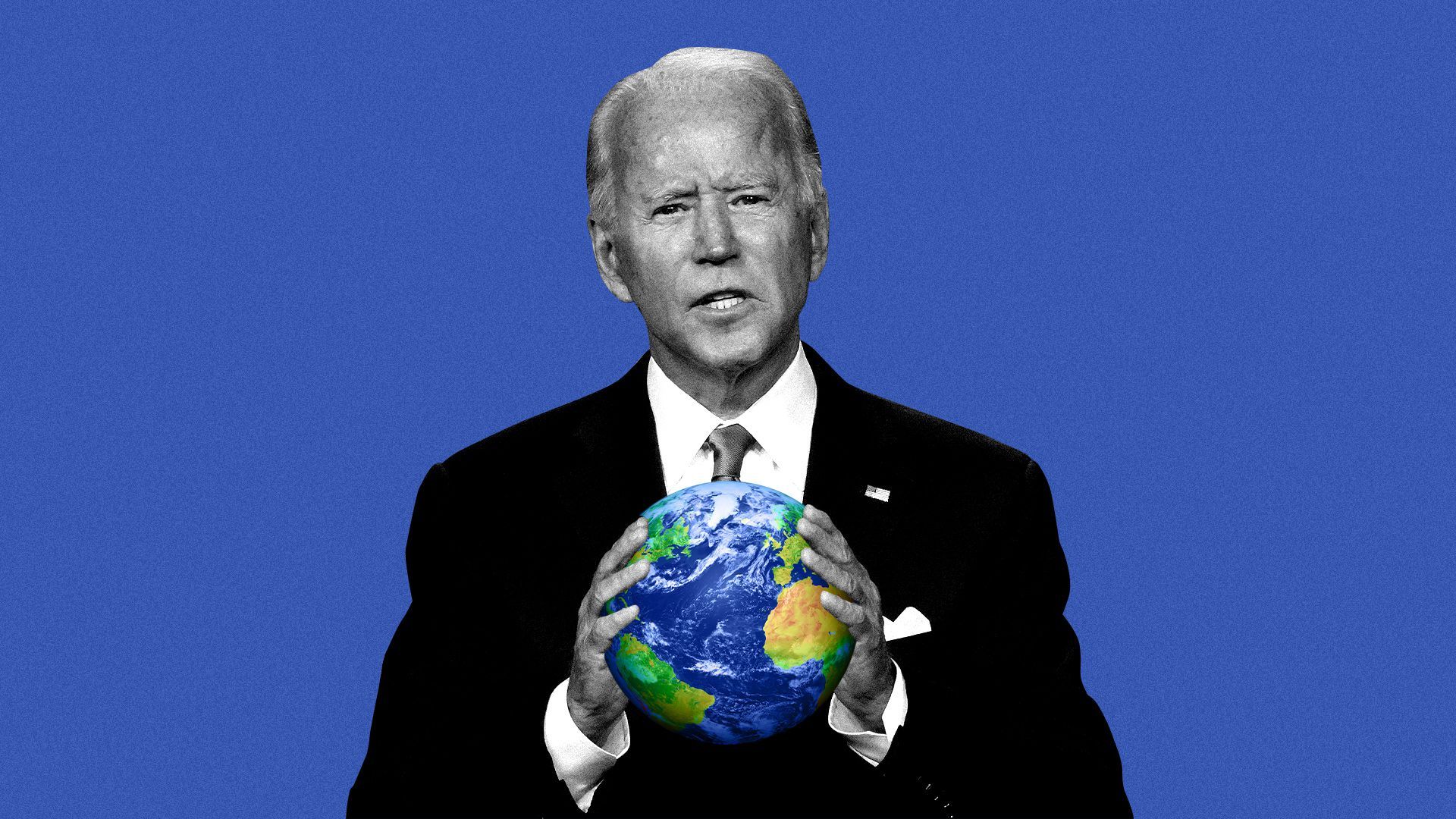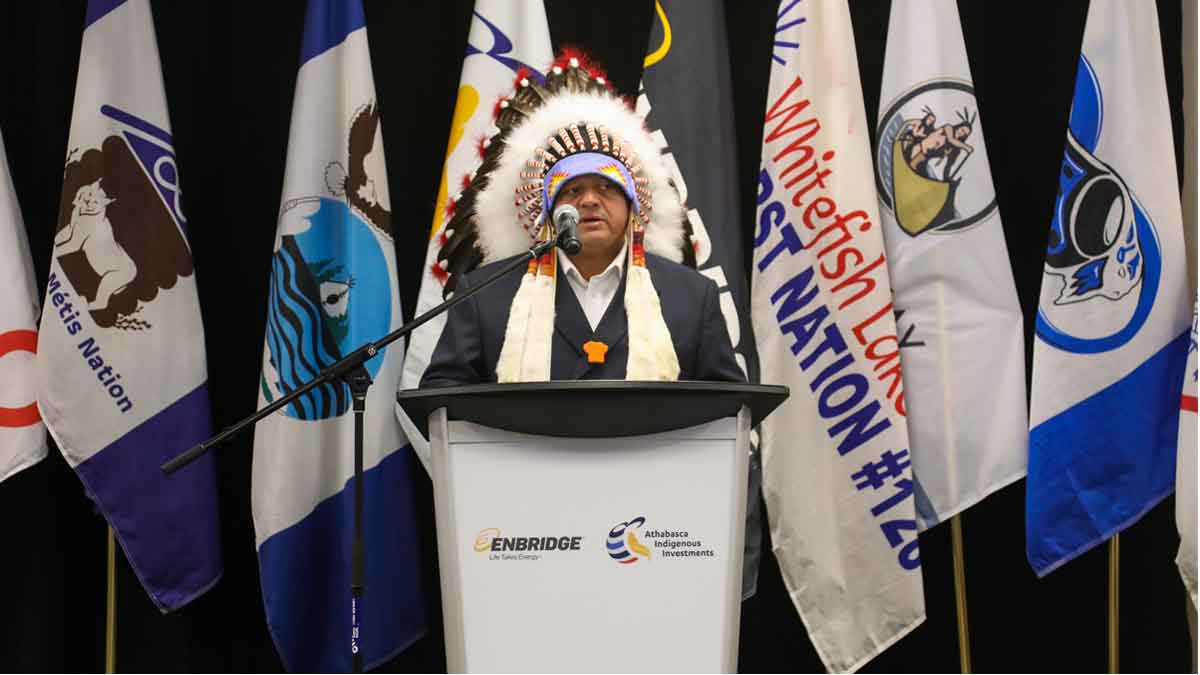| |
| |
| |
| Presented By Enbridge |
| |
| Axios Generate |
| By Ben Geman and Andrew Freedman · Oct 31, 2022 |
| 🍩 Good morning! Today's newsletter has a Smart Brevity count of 1,032 words, 4 minutes. 📬 Did a friend send you this newsletter? Welcome, please sign up. 🎶 Luscious Jackson's 1996 album "Fever In Fever Out" celebrated a birthday over the weekend and provides today's intro tune... |
| |
| |
| 1 big thing: A climate turning point in Brazil |
 Data: PRODES/INPE; Chart: Erin Davis/Axios Visuals The climate implications of Sunday's Brazilian runoff election are set to reverberate worldwide, Andrew writes. - Leftist former president Luiz Inácio Lula da Silva will return to office after defeating the hard right Jair Bolsonaro.
Why it matters: Bolsonaro has presided over the highest Amazon deforestation rates in 15 years, while Lula enacted policies to protect the rainforest. The big picture: "Lula's victory means the Amazon stands a chance," said Manoela Machado of the Woodwell Climate Research Center, via WhatsApp message on Sunday night. - The world's largest tropical rainforest is home to an astonishingly diverse species mix. Its trees and soils make it one of the planet's most important carbon sinks and freshwater resources.
- However, the Amazon is slipping into a more unstable state. Studies show that human activities, including deforestation, have turned parts of the rainforest from a net carbon sink to a source.
By the numbers: During Lula's first term in office, from 2003 to 2006, Amazon deforestation plummeted by 43.7%, according to Tasso Azevedo from MapBiomas. During his second term, which lasted through 2010, it dropped by 52.3%. - This trend was dramatically reversed under Bolsonaro, with Amazon development serving as a key policy plank. Deforestation has surged by 72% during Bolsonaro's time in office.
- His administration hollowed out environmental enforcement agencies, giving more room for illegal land grabs by developers.
Between the lines: Much of the rainforest that has been cut down is used as cattle grazing lands for beef exports or for other agricultural products. - Amazon conservationists, indigenous defenders and journalists have been attacked and killed. Roads through the forest, illegal setting of fires, followed by tree cutting have proliferated, Machado said.
What they're saying: "The priority must be on curbing deforestation and strengthening protection of indigenous peoples," she said. - "There's a lot of damage to be dealt with, including the systemic issue of deforestation and land conversion."
- Bolsanaro hollowed out environmental protection institutions, including those that oversee the Amazon.
- Machado said the government signaled to would-be developers that seizing land in the Amazon is permissible, and has helped make it profitable as well.
What's next: Bolsonaro may still challenge the election results. - Lula pledged "zero deforestation" in his victory speech.
- Lula's government will need to restore the agencies and nongovernmental organizations that protect indigenous lands as well as other parts of the rainforest.
- Given recent commitments from world leaders to halt and reverse deforestation by 2030, Lula may find partners willing to devote funding and technical resources to the task.
Read the whole story. |
    |
| |
| |
| 2. U.S. oil giants drop hints on transition plans |
 |
|
| Illustration: Rebecca Zisser/Axios |
| |
| Exxon and Chevron's announcements of a combined $30 billion-plus Q3 profit Friday also offered morsels about the future of their low-carbon business lines, Ben writes. Driving the news: Exxon's presentation says expanded subsidies in the new climate law will double the amount of industrial CO2 that's cost-effective to capture in the Houston area by 2030. Catch up fast: Exxon is working with other large companies on plans for a CO2 capture "hub" in the Houston region. It also recently signed a deal with CF Industries to trap and store emissions from a Louisiana ammonia plant. Yes, but: The presentation says "expedited permitting" and "further regulatory action" is needed, and CEO Darren Woods' told analysts Friday that years of delays could follow without it. Driving the news, part 2: Chevron CEO Mike Wirth hinted at future acquisitions from its "new energies" division, the home for Chevron's CO2 capture, hydrogen and other efforts. - "[T]here's a very active market out there where you could see some things come together because nobody has all the pieces," he said on an earnings call.
- "We're going to find combinations probably are necessary to actually begin to put those pieces together."
- This year Chevron bought the Renewable Energy Group, a biodiesel producer, in a $3.15 billion deal, and has partnerships with other companies.
Of note: Traditional oil, gas and fuels remain their dominant business lines and investments. |
    |
| |
| |
| 3. The political fallout of Exxon's haul |
 Data: FactSet; Chart: Axios Visuals Making gobs of money off oil and gas while American households adjust to record energy price inflation will put you in political and social crosshairs, Axios' Kate Marino reports. What they're saying: Exxon CEO Darren Woods told investors on the earnings call that the company would remain "disciplined" and stick to production goals from the beginning of the year before Russia's invasion of Ukraine sent prices skyrocketing. The bottom line: The company plans to shell out $30 billion for dividends and stock buybacks this year, so don't be surprised to see more exchanges like this one — between Woods and President Biden on Friday. Kate's got more in the Axios Markets newsletter (sign up) |
    |
| |
| |
| A message from Enbridge |
| Hydrogen, fuel of tomorrow — today |
| |
 |
| |
| Enbridge is blending green hydrogen into natural gas to lower the carbon content and curb greenhouse gas emissions. What you need to know: Enbridge was the first to pilot blending in North America — just one of the investments it's making to green the natural gas grid. Here's how it works. |
| |
| |
| 4. Biden will attend key climate talks in Egypt |
 |
|
| Photo illustration: Aïda Amer/Axios. Getty Images photo: Win McNamee |
| |
| It's official: President Biden will attend the big annual United Nations climate summit in Sharm el-Sheikh, Egypt, on Nov. 11, the White House said, Ben writes. Why it matters: Having the leader of the world's largest historical carbon emitter — and second-largest current source behind China — show up could boost the difficult talks. Quick take: Biden officials enter the summit in a stronger negotiating position than last year. Summer passage of $370 billion of low-carbon energy investments likely gives the U.S. more credibility as it pushes other countries to do more. Yes, but: The summit will feature tough negotiations over rich industrial powers compensating developing countries for climate harms they've played little role in causing. - U.S. officials say they support the "loss and damage" concept but are wary of committing to specific funding mechanisms.
- And Biden's ability to follow through on new aid pledges will be constrained if, as appears likely, the midterms bring GOP control of one or both chambers of Congress.
Of note: Biden's visit does not coincide with the Nov. 7-8 part of the summit that features other heads of state. |
    |
| |
| |
| 5. 🧮 Number of the day: 26% |
| That's the share of 54 large global banks analyzed by Bloomberg Intelligence that have interim 2030 targets for power and oil-and-gas lending that are consistent with the IEA's 2050 net-zero pathway. |
    |
| |
| |
| 6. Quoted |
| "There is going to be a very significant shortage in copper...It's going to be very difficult to meet the aspirations that have been set." — Richard Adkerson, CEO of mining giant Freeport-McMoRan His comments in the Financial Times underscore wider fears of a shortfall in the massive copper supplies needed for the global low-carbon transition. |
    |
| |
| |
| A message from Enbridge |
| Building progress together |
| |
 |
| |
| Enbridge has embarked on the largest energy-related Indigenous economic partnership transaction in North America. The story: 23 First Nation and Métis communities will acquire a 11.57% interest in 7 Enbridge-operated pipelines in northern Alberta for $1.12 billion. Read more. |
| |
| 🙏Thanks to Mickey Meece and David Nather for edits to today's newsletter. And an h/t to @albumism for today's music trivia. We'll see you back here tomorrow! |
 | | Why stop here? Let's go Pro. | | |









No comments:
Post a Comment